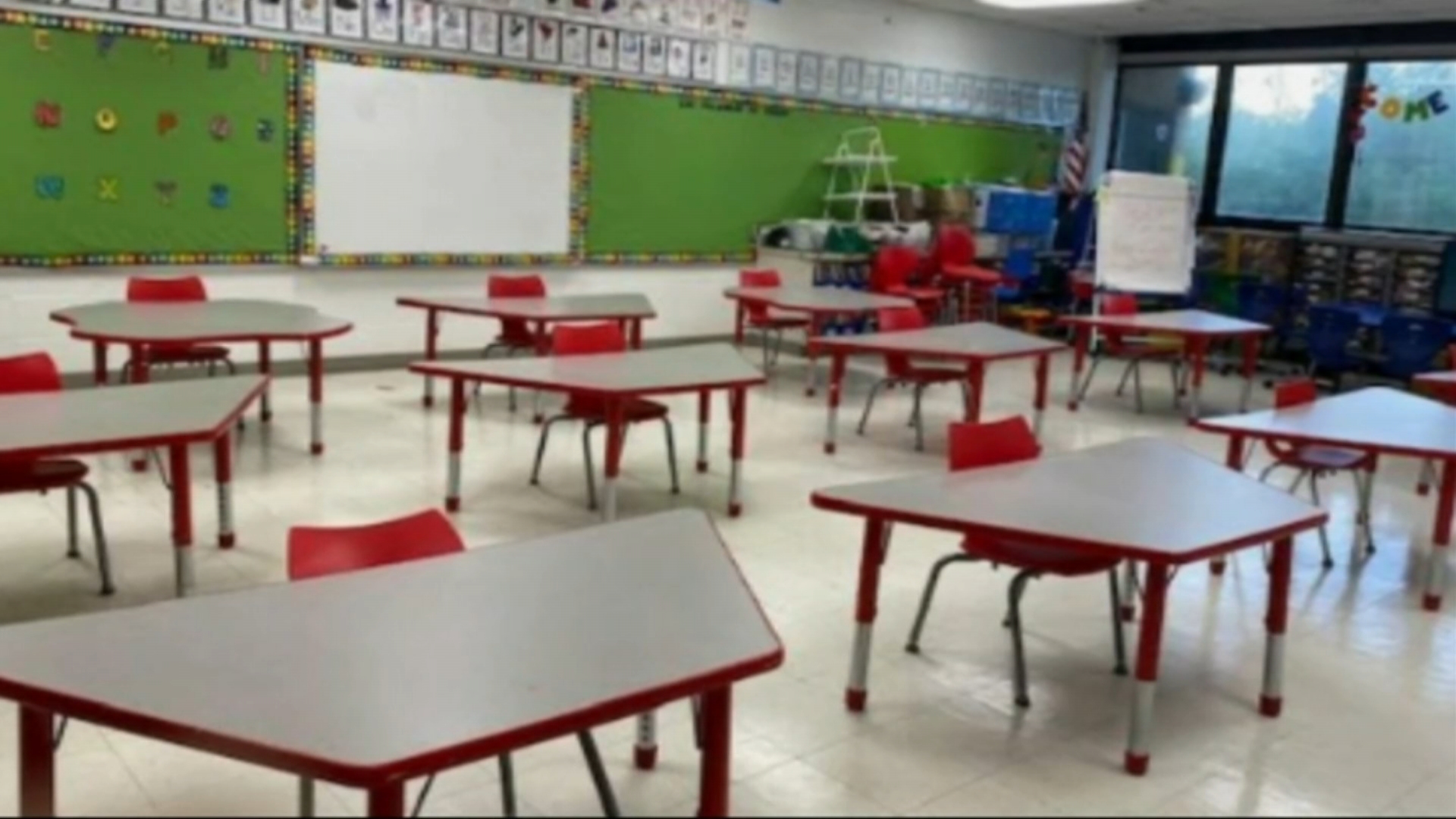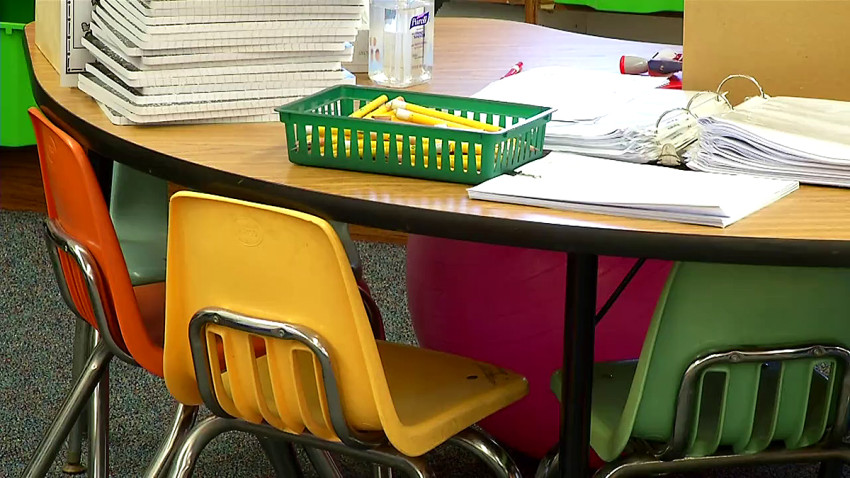With many schools preparing for a return to the classroom this fall, mask and social distancing restrictions have many parents, teachers and experts questioning how reasonable the requirements actually are.
The state of Illinois' guidelines for the return to school in the fall require all students age 5 or older to wear facial coverings.
The guideline has been included in several plans already announced for certain districts in the state.
Township High School District 211, one of the largest school districts in Illinois, announced its preparations Friday, which includes wearing face coverings and the potential for alternating between remote learning and in-classroom instruction to limit students in the school at one time.
Also on Friday, the Archdiocese of Chicago announced its plan to reopen schools in the fall, mandating face masks for students over the age of 2, student "cohorts," temperature checks and the option to continue online learning.
The CDC’s existing guidance recommends that students and teachers wear masks whenever feasible, spread out desks, stagger schedules, eat meals in classrooms instead of the cafeteria and add physical barriers between bathroom sinks.
But with the restrictions comes concern from parents, teachers and experts.
According to Terri Sabol, an assistant professor of human development and social policy at Northwestern's School of Education and Social Policy, schools are faced "with a nearly impossible task."
"Prioritize the health and safety of teachers, students, and their families while ensuring that education meets the needs of young children and families," she said in a statement.
Sabol said it's possible to strike a balance, "but it will not be easy."
"Safety precautions for schools that serve young children will have to look different compared to schools that serve older children," Sabol said. "For instance, it is not reasonable or developmentally appropriate to expect young children to practice social distancing in a classroom. If you have ever been in a high-quality preschool classroom, you know that they are loud, interactive, and buzzing with excitement. On any given day, you may find teachers and children huddling over a sunflower plant, carefully picking out seeds with a tweezer while guessing and predicting how it grew. At the same time, a separate group of children may play doctor and patient in dress-up area while two children paint a picture together at the easel. It is through these interactions that children learn, grow and create. These active, dynamic interactions cannot simply be replaced with individual desks 6-feet apart (nor could young children even sit in a desk all day if we tried)."
Similar concerns over how young children will be able to wear a mask for a day were noted by Dr. Sadiya Khan, an assistant professor of preventative medicine in epidemiology at the Northwestern University Feinberg School of Medicine.
"Recommendations by the American Academy of Pediatrics are that children age 2 years and up should wear a mask and/or cloth covering if not able to socially/physically distance," Khan said in a statement. "The most important thing is to ensure that it is comfortable and fits well, covering the nose and mouth. It is also important to remember to wash hands before and after putting it on and taking it off."
But will kids keep them on?
"Based on personal experience with two small children (age 2 and 3 years), eliminate the fear factor and normalize wearing masks by showing yourself wearing them as well as having their stuffed animals wear them," Khan said. "It has quickly become part of my children's 'normal' and they remind me to wear one before we leave the house."
There are also concerns for bilingual families as some research suggests children speaking multiple languages tend to rely on the mouth of the person speaking and other visual cues that could be hindered by a mask.
"There are potential implications of mask-use for dual language learners that we will want to keep an eye on," Adriana Weisleder, Director of the Child Language Lab, said in a statement. "On the other hand, children are also remarkably adaptable and may learn to rely on other kinds of cues in this environment."



